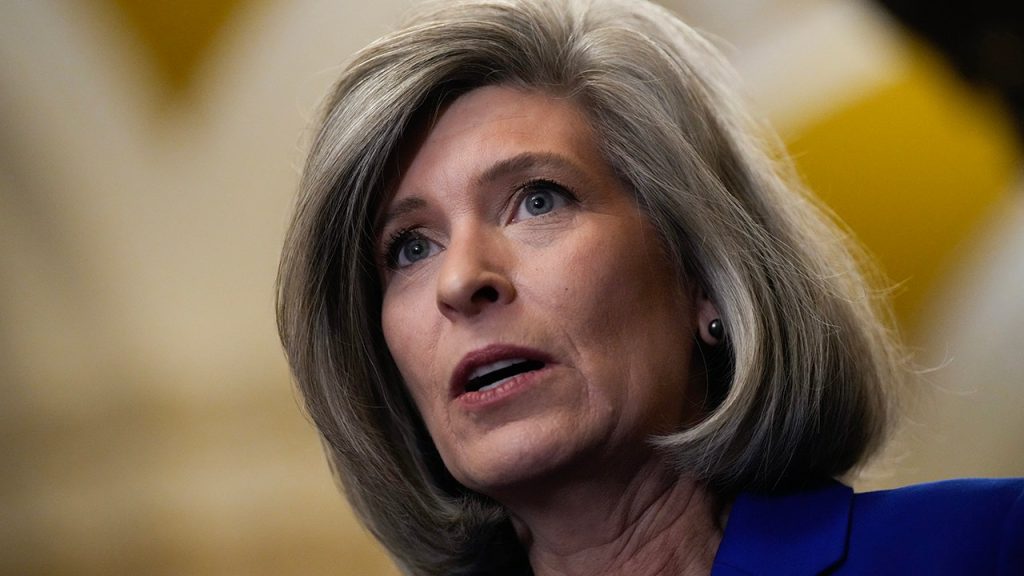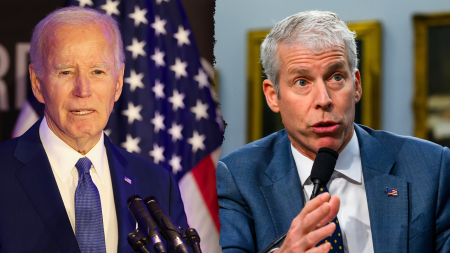The nomination of Pete Hegseth, a former Fox News host and National Guard officer, as Secretary of Defense has ignited a firestorm within the Republican Party, pitting staunch Trump loyalists against more establishment figures. Hegseth, nominated by Trump last month, faces allegations of sexual misconduct and excessive drinking, which he denies, as well as opposition from some within the GOP. This resistance is epitomized by Senator Joni Ernst of Iowa, a member of the Senate Armed Services Committee, who has yet to endorse Hegseth despite meeting with him. This hesitation has drawn sharp criticism from Trump allies, who frame the opposition as an attack on Trump’s agenda and a deliberate attempt to undermine his presidency. They argue that senators who oppose Trump’s nominees are effectively opposing Trump himself and should face political consequences for their disloyalty.
The battle lines are clearly drawn. Trump and his allies, including his son Don Jr. and Vice President-elect JD Vance, have publicly reaffirmed their support for Hegseth, emphasizing his military experience and unwavering loyalty to the former president. They view Hegseth as a decisive leader who will strengthen the military and project American strength on the global stage. Meanwhile, detractors within the Republican party, along with Democrats, express concerns about Hegseth’s lack of experience in high-level government positions and the seriousness of the allegations against him. Senator Lindsey Graham, for example, has described the accusations as “disturbing.” This internal division within the GOP threatens to derail Hegseth’s confirmation and further exposes the ongoing struggle for control of the party’s future.
Senator Ernst’s position is particularly precarious. As a retired Lieutenant Colonel in the Iowa National Guard and a member of the Armed Services Committee, her opinion carries significant weight. She has stated that she needs more information, particularly regarding Hegseth’s stance on sexual assault in the military, a topic of personal importance to her as a survivor herself. While she has expressed a willingness to engage in “constructive conversations” with Hegseth, her reluctance to offer full-throated support has made her a target for pro-Trump factions. Conservative commentators and activists are openly discussing primary challenges against her, highlighting the potential political fallout for Republicans who appear to defy Trump’s wishes.
The pressure on Ernst and other hesitant Republicans is mounting. Trump loyalists are employing a range of tactics, from public pronouncements of disapproval to threats of primary challenges and targeted ad campaigns. Conservative groups are investing significant resources in supporting Hegseth’s nomination, framing him as a victim of a “deep state” conspiracy and urging voters to contact their senators to demand his confirmation. This coordinated effort reflects the enduring power of Trump’s influence within the Republican base and the willingness of his supporters to mobilize against perceived enemies within the party.
Adding fuel to the fire are past instances where Ernst has deviated from the Trump line, including her support for transgender individuals serving in the military, a position that directly contradicts Trump’s policy. These past disagreements further complicate her current predicament and provide ammunition for those seeking to portray her as disloyal to the Trump agenda. The Hegseth nomination has become a litmus test for Republican loyalty, and Ernst’s cautious approach is being interpreted by some as a sign of rebellion. This situation underscores the deep fissures within the Republican party and the ongoing tension between Trump loyalists and those seeking a different path forward.
The stakes are high for both Hegseth and Ernst. Hegseth’s confirmation would solidify Trump’s influence within the Department of Defense and further entrench his vision for the military. For Ernst, the decision carries significant political ramifications. Supporting Hegseth could alienate moderate voters and damage her reputation as an independent voice, while opposing him could invite a primary challenge and potentially end her political career. Her dilemma reflects the broader struggle within the Republican party as it grapples with its identity and direction in the post-Trump era. The outcome of Hegseth’s nomination will have far-reaching consequences, shaping not only the future of the Department of Defense but also the trajectory of the Republican party itself.










